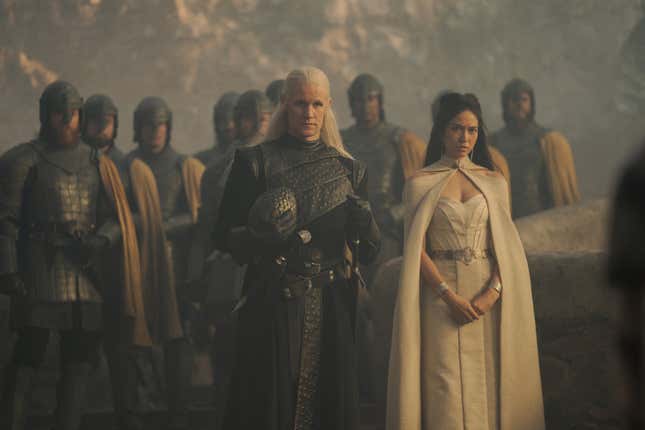Anti-Asian Racism Seeps Into Colorblind Casting on ‘House of the Dragon’
Sonoya Mizuno, the show’s only Asian actor, was cast as Mysaria, a distinctly foreign sex worker who’s repeatedly referred to as a “whore.”
EntertainmentTV

House of the Dragon, the prequel series set 200 years before the events in Game of Thrones, diverges from its predecessor in a number of ways—namely that it has an entirely new cast of characters. But the show is also casting its characters differently, seemingly taking a more race-neutral approach in the vein of recent shows like Bridgerton or Hamilton. Audience reaction has thus far focused largely on Corlys Velaryon, a member of King Viserys’ council portrayed by Steve Toussaint, a Black actor. As of this week’s episode, it seems we should also be discussing the casting of Daemon Targaryen’s, err, mistress, a sex worker named Mysaria.
In George R.R. Martin’s books about the Targaryen dynasty, Mysaria is described as having almost albino-like features: white hair and white skin. Her hauntingly pale coloring is the inspiration for her eventual nicknames, “Misery” or “Lady Misery.” To that end, it definitely raises a few eyebrows that Sonoya Mizuno, who plays Mysaria, is currently the only Asian woman cast in the show—and she portrays a distinctly foreign sex worker.
-

-

-

-

-

-

-

-

-

-

-

-

-

-

-

-

-

-

-

-

-

-

-

-

-

-

-

-

-

-

-

-

-

-

-

-

-

-

-

-








































